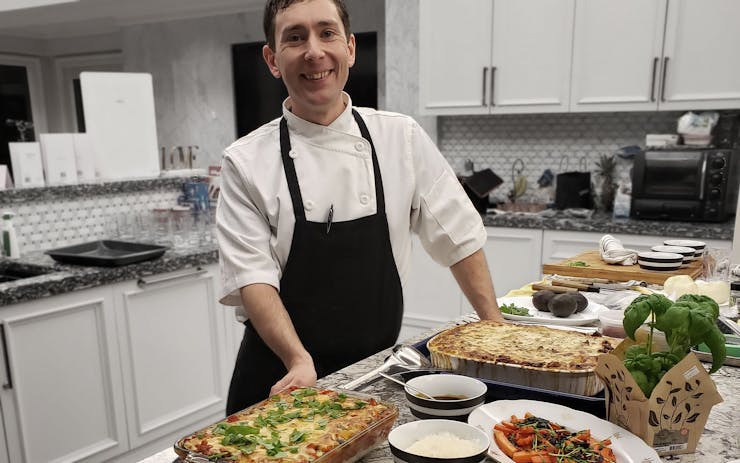In a survey conducted by the US-based National Restaurant Association in late 2018, almost 700 professional chefs predicted that CBD-infused drinks and CBD-infused foods would be the most popular trends in dining in the coming year.
They predicted that infusing foods with cannabis would create unique culinary opportunities and establish a new dining experience. Many industry insiders expect the same scenario to unfold in Canada after edibles and concentrates become legal nationwide.
People don’t scrutinize cannabis the way they scrutinize food, but they should.
In anticipation of that development, Zenabis, a licensed producer of medical and recreational cannabis based in Vancouver, BC, has teamed up with Red Seal chef John MacNeil. A chef earns a Red Seal accreditation by demonstrating superior skills and knowledge, and passing a national exam.
MacNeil is from Cape Breton, NS, but worked at Michelin-rated restaurants in Europe and then made a name for himself in Calgary, where he was an executive chef of the award-winning Italian restaurant, Teatro Ristorante. He opened The Black Pig Bistro in the city’s trendy Bridgeland area five years ago. He later sold it to his business partners and started reTreat Edibles, which sells baking mixes formulated to accommodate the addition of cannabis.
View this post on Instagram
Aware of his credentials, many Canadians approach MacNeil, an expert in molecular gastronomy, to discuss cooking with cannabis. He starts by emphasizing the importance of origin. “You should only use legally produced cannabis to ensure it’s clean and safe,” he says. “People don’t scrutinize cannabis the way they scrutinize food, but they should.”
He fields many questions in those conversations. Here are some of the most common:
How does cannabis affect the flavour of a dish?
Like wine grapes, cannabis comes in countless strains with various flavours including, for example, citrus, berry, mint and pine. These flavours are created by aromatic oils called terpenes, which are secreted in the same glands that produce cannabis compounds including Tetrahydrocannabinol (THC) and Cannabidiol (CBD). Terpenes form part of the flavour profile of a cannabis-infused dish so it’s important to select ones that complement the other ingredients.
How much cannabis should be included in a dish?
MacNeil compares learning how much cannabis to include in a dish to learning how to cook steak properly. You overcook then undercook before learning to make it just right. It takes practice to find out where the sweet spot is, he says.
Dosing varies from one individual to the next depending on a person’s previous history of cannabis consumption, gastrointestinal factors, and the sensitivity of his or her endocannabinoid system. Most experts recommend a starting dose of no more than 2.5 mg of bud for beginners. However, since effects vary based on each person consuming, MacNeil does not make dosing recommendations.
Also, it takes awhile for edibles to take effect so beginners often make the mistake of ingesting too much too soon. MacNeil and other experts advise beginners to wait around two hours before deciding whether to take a second dose.
What is one of the most popular cannabis-infused items people make at home?
Many people express an interest in cannabis-infused brownies. MacNeil recommends using Thai coconut milk and French chocolate.
To infuse cannabis into chocolate brownies and other baked goods, many people use the whole plant, drying, curing and then grinding it into a flour-like substance and combining it with cooking oil or butter.
When should THC and CBD be consumed?
This is entirely up to the individual consuming it. Depending on the desired outcome, some prefer consuming high THC, a psychoactive compound, while others prefer high CBD for less of a high. In short, pick a strain based on your desired effect.
Cooking with Cannabis Recipes by Chef John MacNeil
- Kale Burger and Cannabis Infused Mayonnaise
- Coconut Steel Cut Oats with Mango Blueberry Lime Gremolata






